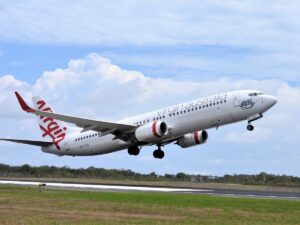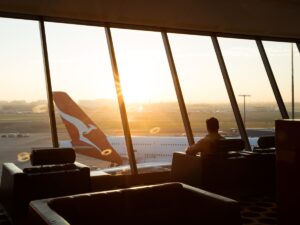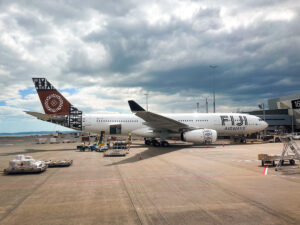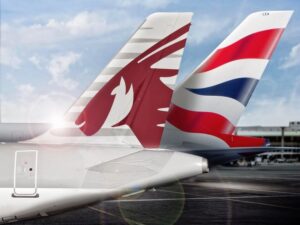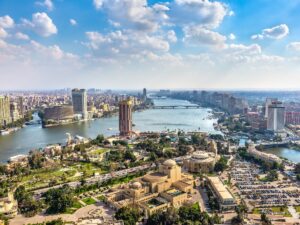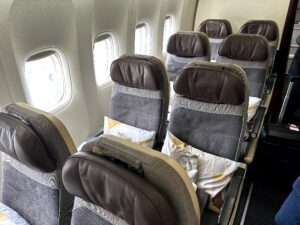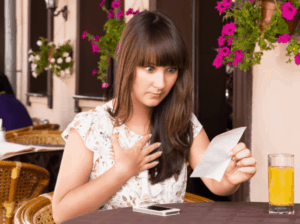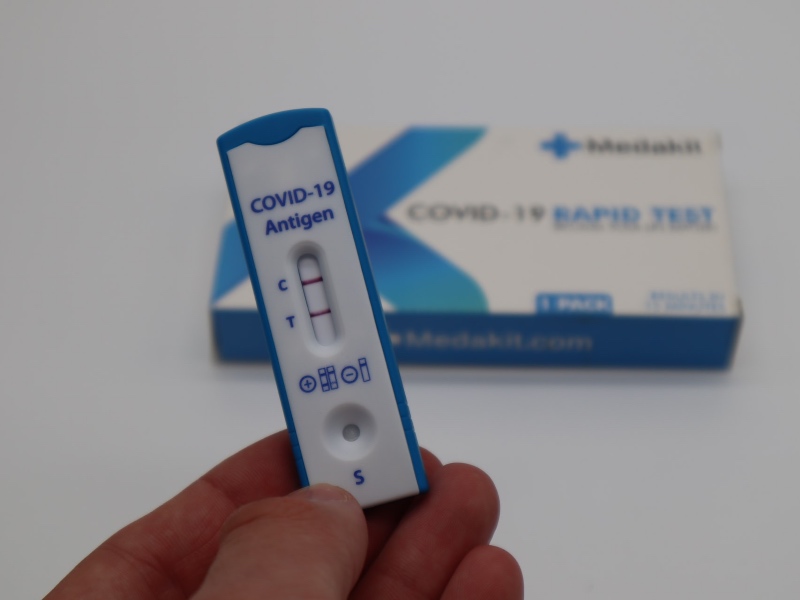
To return to Australia from overseas, you would need to get a negative COVID-19 PCR test within 72 hours of your flight home. But there’s an elephant in the room that most of the travel industry doesn’t want to talk about: What happens if your test result is positive?
Since Australia introduced the pre-flight testing requirement, there have been a small percentage of people who were unable to board their flights home due to receiving a positive pre-flight test result. This could be either because they had coronavirus, or due to a false positive or inconclusive test result.
Being vaccinated against COVID-19 significantly reduces the risk of getting infected, and a booster shot could further reduce this risk, but breakthrough infections are still possible. So, what happens if you do catch COVID-19 while overseas?
You’ll need to isolate, but rules vary by country
After getting a positive COVID-19 test result, you’ll almost certainly be required to isolate for a period of 10-14 days and/or until you no longer have symptoms. Your travel companions and other close contacts might also be required to isolate or get a COVID-19 test.
This is what would happen if you tested positive for COVID-19 in some of the key countries currently welcoming travellers from Australia…
Singapore
If you test positive for COVID-19 in Singapore, you’ll be served an Isolation Order (IO) by the Singapore Ministry of Health and placed on a Home Recovery Programme for 10 days. If you live in Singapore, this means staying at home and isolating from others in your household. If you don’t live in Singapore, you may need to isolate in a government-approved quarantine facility (hotel). If severely unwell or you do not qualify for the Home Recovery Programme, you may be transferred to a hospital.
In Singapore, vaccinated people in quarantine are automatically discharged at 12pm on Day 10. (People who are unvaccinated, including children, would need to isolate for 14 days instead of 10.) After completing your 10 days of isolation you’ll receive an SMS and, provided you feel well, will then be free to continue your trip without needing to get another COVID-19 test.
If you are identified as a close contact of a confirmed COVID-19 case while in Singapore, you’ll receive a Health Risk Warning (HRW) SMS and would need to isolate for 7 days.
UK
In the UK, you would need to isolate for 10 days from the date you started getting COVID-19 symptoms (or the date of your test if asymptomatic). This could be at your home or at a hotel.
In the UK, close contacts of COVID-19 cases are not required to self-isolate if fully vaccinated or under 18 years old.
USA
If you test positive for COVID-19 in the USA, the CDC recommends isolating from other people until 10 days have passed and you no longer have symptoms (except for loss of taste and smell, which can last a long time but is not a sign of being infectious).
In the United States, fully vaccinated close contacts are not required to self-isolate unless they have symptoms, but are requested to get a COVID-19 test 5-7 days after their exposure and wear a mask in indoor public spaces for the next 14 days.
Canada
In Canada, you would be required to immediately isolate from others for a period of 10 days after receiving a positive COVID-19 test result. This could be at home or a hotel. If you do not have anywhere to isolate, the Canadian government may direct you to a federal designated quarantine facility as a last resort.
Thailand
Thailand has reopened to vaccinated tourists, who are now required to have at least USD50,000 worth of travel insurance cover for COVID-19 medical expenses and stay the first night in a designated quarantine hotel while waiting for the result of a COVID-19 test taken on arrival.
While Thailand has released lots of information about the confusing new arrival process for tourists, there isn’t much information about what happens if you test positive on arrival.
But anecdotally, if you test positive in Thailand, you would be taken to hospital for 14 days regardless of symptoms. If you are a close contact of a confirmed case, you would need to isolate in a quarantine hotel for 14 days.
Fiji
When travelling as a tourist from Australia to Fiji, you’ll be required to stay the first few nights in a designated “Care Fiji Commitment” hotel and get a COVID-19 Rapid Antigen Test after 48 hours.
If your test result is positive, you’ll have to get another test and isolate in your hotel for at least 10 days. You may be moved to a medical facility if you require treatment. You’ll be released from isolation once you get a negative COVID-19 test result.
Returning to Australia after catching COVID-19 overseas
Clearly, if you have recently tested positive for COVID-19, you will not be allowed to board your flight to Australia or continue your trip until you have recovered. Many transport operators will also deny boarding to anyone displaying COVID-like symptoms.
According to the Australian government Department of Health website, this is what you should do if your pre-departure COVID-19 test result is positive:
You should not go to the airport as you may be stopped from checking-in or boarding the aircraft by your airline. You may also have primary close contacts in your travelling group. These people should not travel as you may have passed the infection on to them. A primary close contact is anyone who has had unprotected exposure to a confirmed case. You and your primary close contacts should immediately isolate and seek advice from your local health authority.
The Australian government treats an “inconclusive” test result as a positive result. In this instance, you may need to defer your travel plans and get a second test.
You will also not be allowed to fly to Australia as a primary close contact of somebody who has recently tested positive for COVID-19.
After serving your isolation period and recovering from COVID-19, you will be able to continue your trip or fly home once you’ve received a negative test. Alternatively, if you continue to get a positive test result for an extended period but have recovered and are no longer infectious, you can present a medical certificate in conjunction with a positive COVID-19 test taken within 3 days of your flight.
Travel insurance is crucial
Given the risk of catching COVID-19 while overseas – and the potential for additional medical and quarantine expenses if this happens – travel insurance with cover for COVID-19 is absolutely essential.
There are now numerous companies offering international travel insurance to Australians that includes cover for the following COVID-related events:
- You need medical treatment or hospitalisation after catching COVID-19 overseas
- You test positive for COVID-19 overseas and incur additional accommodation or quarantine costs
- You incur cancellation costs because you or your travel companion contracts COVID-19 before or during your trip and can’t continue the trip
Some insurers may also cover:
- Medical evacuation or repatriation costs if you are diagnosed with COVID-19 overseas
- Additional accommodation costs if you are denied boarding on public transport due to COVID-like symptoms
- Trip cancellation costs if your relative or business partner in Australia gets COVID-19 and this is life-threatening
- Trip cancellation costs if you are required to quarantine in Australia as a close contact of a COVID-19 case
However, you should be aware that insurance won’t necessarily cover everything. For example, some policies do not provide cover if you are forced into quarantine overseas as a close contact of a COVID-19 case but you personally test negative. There is also no protection for government-imposed lockdowns or border closures.
There is no cover for travel to countries with an Australian government “Do not travel” warning. Some insurers also do not cover travel to destinations with a “Reconsider your need to travel” warning, and you generally won’t be covered if you are unvaccinated or ignore government advice.
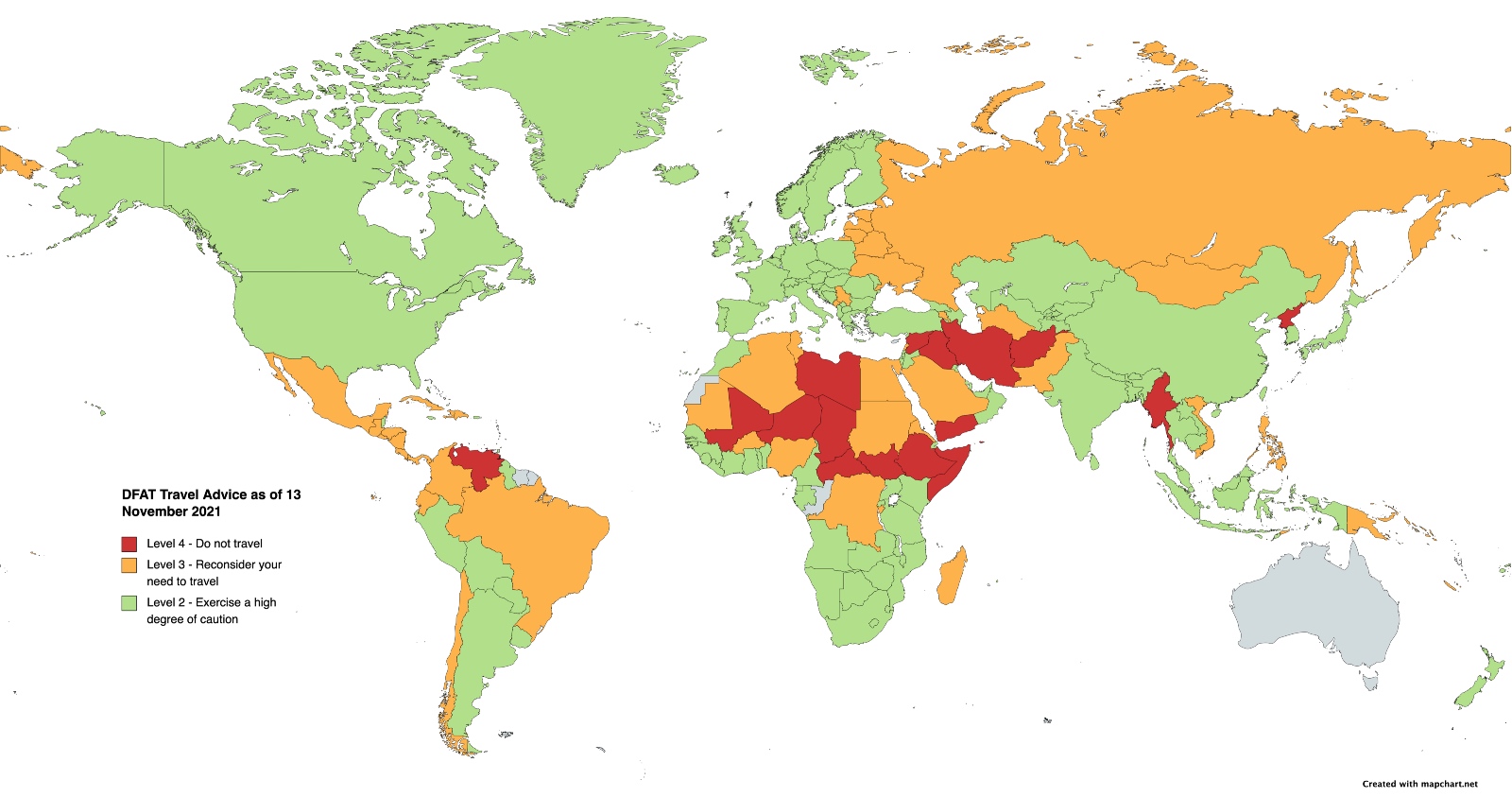
When choosing a travel insurance policy, read the Product Disclosure Statement (PDS) carefully. Some insurers exclude cover for anything related to COVID-19.
See our Guide to International COVID-19 Travel Insurance for Australians for more on insurance options.
Insurance can’t prevent disruption to your trip
While travel insurance can cover some of the expenses if you happen to catch COVID-19 while overseas, your trip will be disrupted. Unfortunately, this is just one of the risks you’ll have to accept if you want to travel abroad at this stage of the coronavirus pandemic.
Join the discussion on the Australian Frequent Flyer forum: What happens if you catch COVID whilst overseas?


